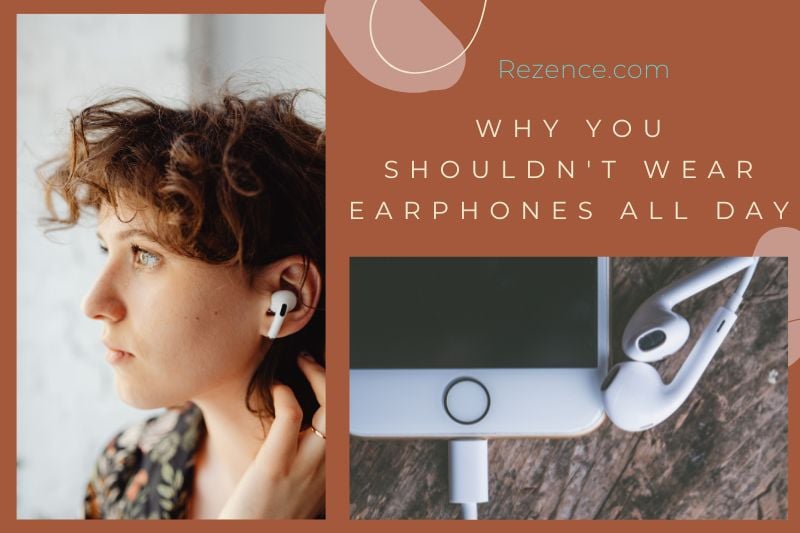In this article, we will discuss why you should not wear headphones and the possible dangers that come with them.
What Is Earwax Used For?
In humans and many other mammals, the creation of earwax, also known as cerumen, is a typical occurrence. The ear canal’s entrance should always have a thin layer of wax covering it.
A waterproof and insulating secretion, wax. This creates a barrier against insects, bacteria, and water while moistening the skin of the external ear canal and acting as a defense mechanism against infection. Dry earwax has more of a white color, but wet earwax is dark and sticky.
In fact, earwax serves as such a strong barrier that there are accounts from the 1800s of it being used as a potent lip balm.
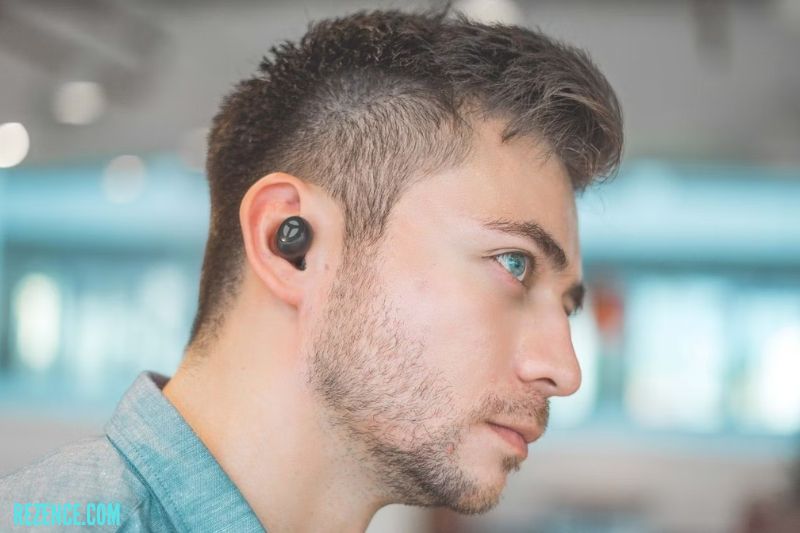
A naturally occurring substance generated in the outer part of the ear canal is called earwax. It is made by the oil and sweat gland secretions that the hair follicles emit, which trap dust, bacteria, fungi, hairs, and dead skin cells to generate the wax.
The external ear canal can be compared to an escalator system, with the wax constantly going outside to keep the ears free of dead skin cells.
Natural jaw motions also help the earwax to migrate. The earwax simply comes out once it reaches the end of the ear.
How Earbuds Might Impact This System
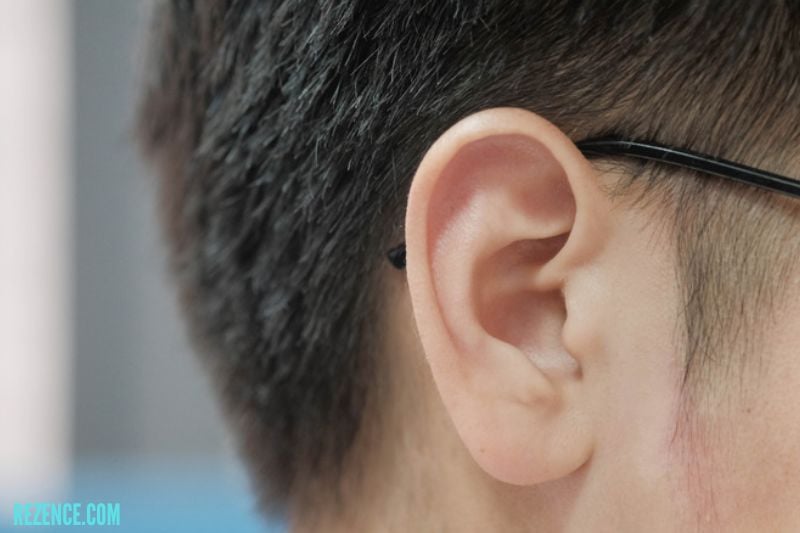
The ear is self-cleaning and functions best when left undisturbed. However, anything that prevents earwax from going outside should lead to problems.
In-ear device use under normal circumstances rarely results in issues. However, continual earphone use, such as if you wear them all day, could:
- Compress the earwax to the point where the body produces inflammation, which makes the earwax less fluid and more difficult for the body to remove naturally. As a result, white blood cells move to the location, and the number of cells in the obstruction rises and affects airflow, preventing moist earwax from drying out. Earwax stimulates build-up and traps sweat and moisture in the ears, making them more vulnerable to bacterial and fungal infections when it retains its stickiness for extended periods of time.
- Block the earwax’s normal ejection, which causes the secretory glands to become stimulated and produce more earwax.
- If the earbuds’ pads are not cleaned well, become contaminated with germs or other infectious agents, or become overly loud, they can harm your hearing and reduce overall ear hygiene.
- Excessive earwax can affect hearing if it builds up and causes additional symptoms like discomfort, dizziness, tinnitus, itching, and vertigo.
Why You Shouldn’t Wear Headphones All Day
Headphone use has been linked to hearing loss.
What happens if you wear headphones too much? One in five teenagers will have some hearing loss, according to the American Osteopathic Association, which attributes this 30% increase over 20 years to more frequent headphone use.
Is it bad to wear headphones all day? This may result in speech and language development deficits in children and young people. However, children are not the only group impacted; according to the National Institute of Health, one in four American adults between the ages of 20 and 69 exhibit symptoms of noise-induced hearing loss.
In essence, the eardrum vibrates as a result of the sound waves produced by headphones. The cochlea and its hair cells are among the other ear structures that are vibrated. The brain interprets the electronic signal sent by the hair cells as sound after a series of events that the hair cells set off.
However, long-term exposure to loud volumes, according to Dr. Santosh S, causes the hair cells to lose their sensitivity to vibration and may cause them to bend or fold, which can cause temporary or permanent hearing loss.

Studies show that “longer lifetime exposure in years and increasing listening frequency were associated with lower hearing thresholds and more self-reported hearing difficulties,” according to one study from Swedish researchers that was published in the Noise Health journal in 2017.
Additionally, it was discovered that teens who listened for longer than three hours at a time experienced tinnitus.
The World Health Organization has commented on the dangers, advising individuals to use “personal audio devices” sparingly—no more than an hour a day.
Earbuds are inferior to headphones
Dr. Maria Wynens of Atlanta HearingDoctor claims that using headphones is the wiser option because earbuds have a higher risk of damaging your hearing than headphones do.
“Earbuds naturally boost the volume by about 9 dB since they fit into your ear and are so close to the ear canal. Since headphones are used outside the ear, less natural amplification occurs “through her blog, she stated. “Additionally, headphones reduce the amount of background noise. Since distracting noises are not muffled by earbuds, we frequently grab for the volume dial and raise it dangerously high.”
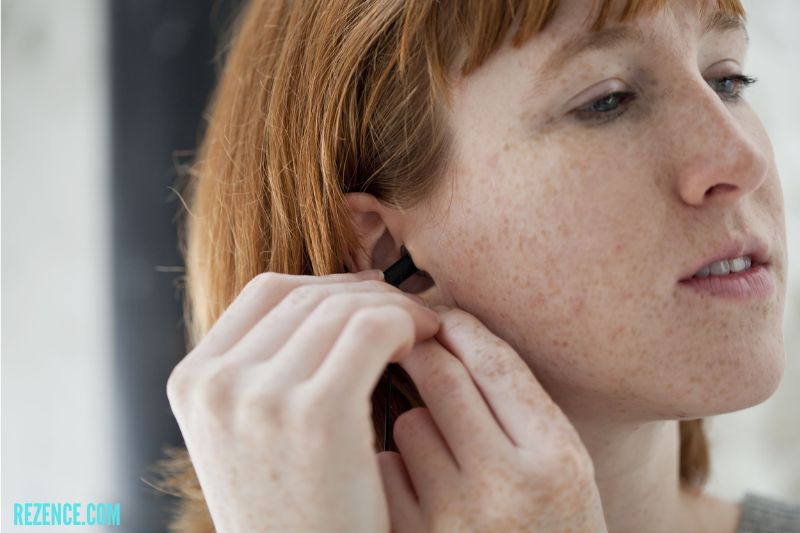
Wynens also emphasizes the prevalence of “cheaply constructed” earphones, which can distort sounds or play at inconsistent volumes, forcing listeners to make adjustments that may worsen their hearing.
Professor of audiology at Southern Illinois University School of Medicine Kathleen Campbell told Popular Science that while noise-canceling headphones may urge users to lower the level, leaky versions may encourage the opposite. It is evident that the type and quality of headphones you purchase will influence how they affect your body.
Headphones can lead to aesthetic problems like acne
Due to their tiny size, earbuds don’t necessarily present the same difficulty as headphones when it comes to skin issues like acne and contact dermatitis.
According to dermatologist Dr. Debra Luftman, “Over-the-ear headphones are the ideal configuration for increasing skin infections and acne breakouts. This is particularly true if you wear them throughout and after an exercise or if you wear them continuously. On and around the headphones, sweat and moisture build-up, squeezing the skin and promoting the growth of germs and yeast.”
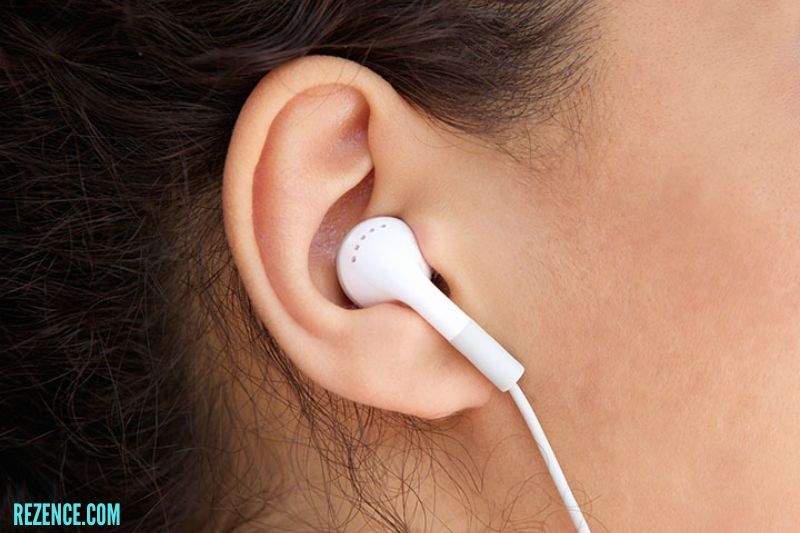
Contact dermatitis can also be brought on by additives in rubber and plastic present in headphones. According to Dr. Jonathan Silverberg of Northwestern University in Chicago, wearing headphones can cause allergic reactions in and around the ears. Users of earbuds appear to be affected by this issue as well, although because earbuds are smaller, the area of contact is smaller.
How To Combat The Negative Effects Of Headphones
Signs of noise-induced hearing loss, according to the Centers for Disease Control and Prevention, include difficulty hearing high-pitched noises and conversations in noisy environments, difficulty hearing speech over the phone, difficulty differentiating consonants, the need to turn up the volume on the television or radio, ringing in the ears, and hypersensitivity to certain sounds.
You can reduce symptoms and avoid them if you wear headphones for more than an hour each day by following a few simple guidelines. Use high-quality noise-canceling headphones first, of course.
Take breaks, limit your device’s volume, and be sure to regularly clean the surfaces and allow them to dry fully before reusing them. It’s best to use an antibacterial cloth or makeup removal wipe. Additionally, pay attention to your body and routinely have your hearing tested by a specialist.
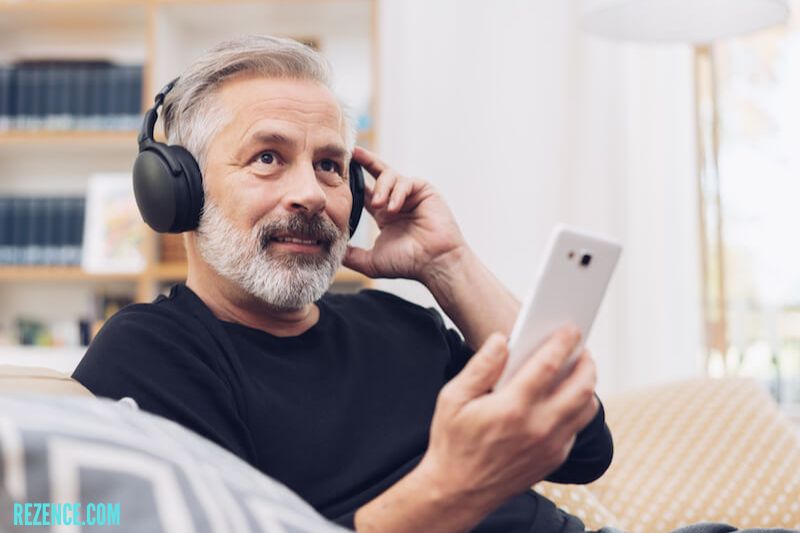
Be aware of the decibel levels you are hearing, and be careful to safeguard your ears in other noisy situations, such as nightclubs. According to the CDC, a rock concert, which ranges in volume from 105 to 120 dB, can cause you to exceed your daily safe noise exposure limit in less than 30 seconds. You still have a lot of listening to do; that’s not much.
Are Some Earphones Better For Long Usage?
There are always disadvantages with specific form factors if you have to use headphones all day at work or during your commute.
In general, over-ear headphones are more breathable and prevent direct contact with the ear canal, which lowers the risk of infection. If you use a heavy headset for an extended amount of time, it may, however, result in neck discomfort. Additionally, they do not entirely solve the issue of heat and moisture retention.
In-ear earphones are unquestionably more portable, unobtrusive, and convenient to use when traveling. Risks arise from their close proximity to your ear canal.

The greatest actions you can do are to keep your devices clean, refrain from sharing them, and make sure to take enough breaks to allow your ear to rest. If you wear earbuds to the gym, you should clean them afterward and wait until your ears are sufficiently dry before re-inserting them.
The issue isn’t with regularly utilizing earbuds or headphones; rather, hazards increase when they are used continuously without any effort made to clean them or rest your ears.
What’s the Right Way to Use Earbuds?
If you don’t use your earbuds for too long or too loudly, noise-induced hearing loss caused by them is completely avoidable.
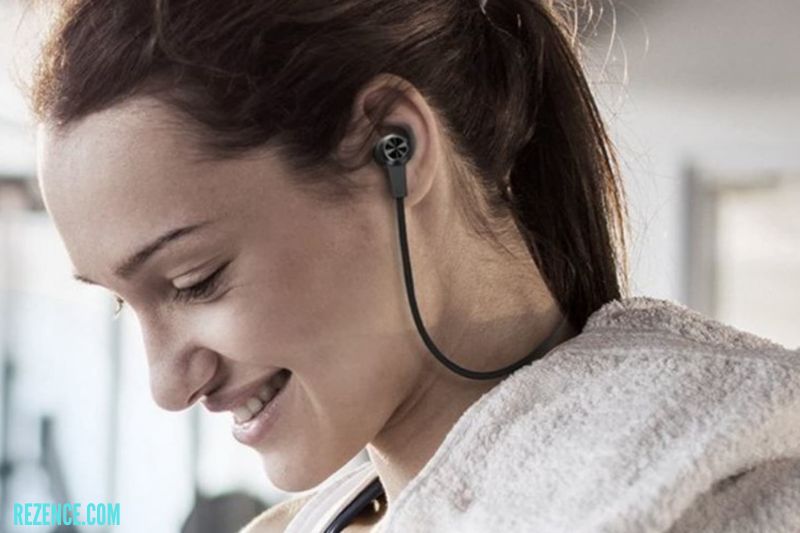
The 60%/60-minute rule is advised by physicians:
- Play video games, watch movies, or listen to music at no more than 60% of the maximum volume.
- How long should you wear headphones a day? You should only wear earbuds for no more than 60 minutes at a time.
- Another technique to check if the volume on your earbuds is safe is as follows: See whether anyone sitting close by can hear your music. If they can, it means your hearing is deteriorating. Reduce the volume so that no one else can hear it.
- Also, keep in mind that playing music loudly can cause you to lose awareness of your surroundings. Your likelihood of an accident rises as a result. For instance, if you’re running on a bike route, your music may be so loud that you can’t hear a cyclist shouting, “Heads up!”
Read also: Why Do My Bluetooth Headphones Sound Muffled
Conclusion
It is clear that wearing headphones can be very dangerous. Not only can it lead to hearing loss, but it can also cause accidents. It is important to be aware of your surroundings when wearing headphones and to always keep them turned down to a safe level.

